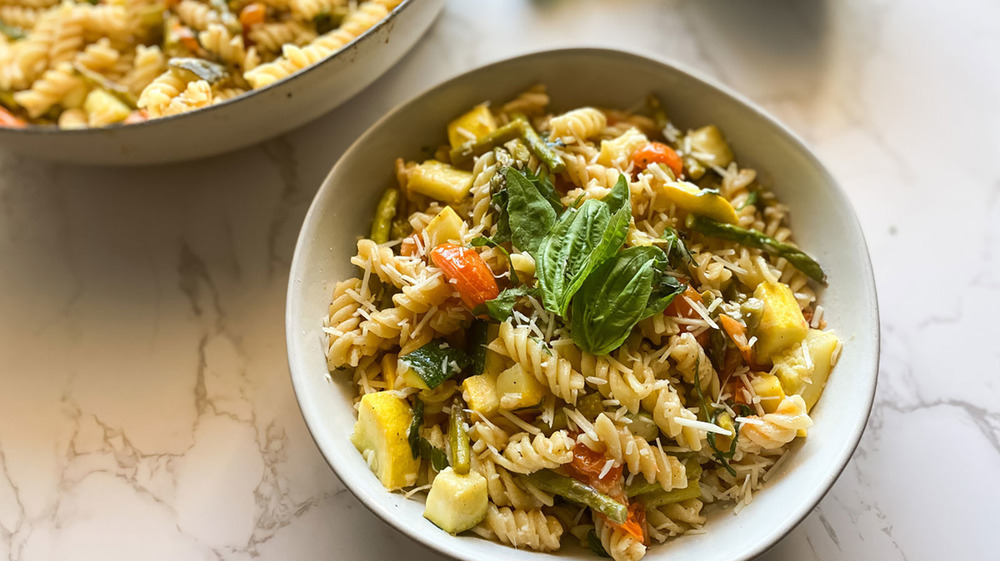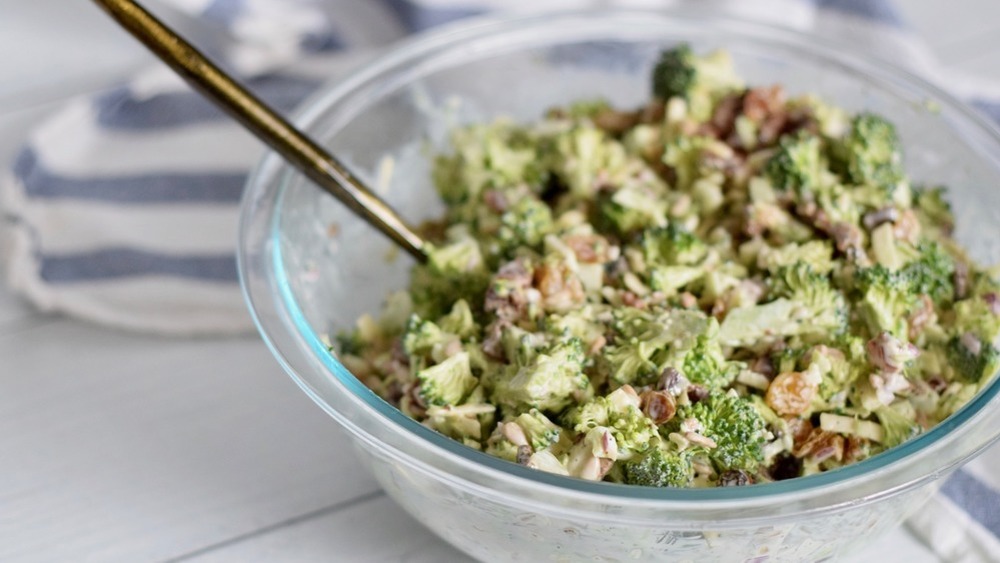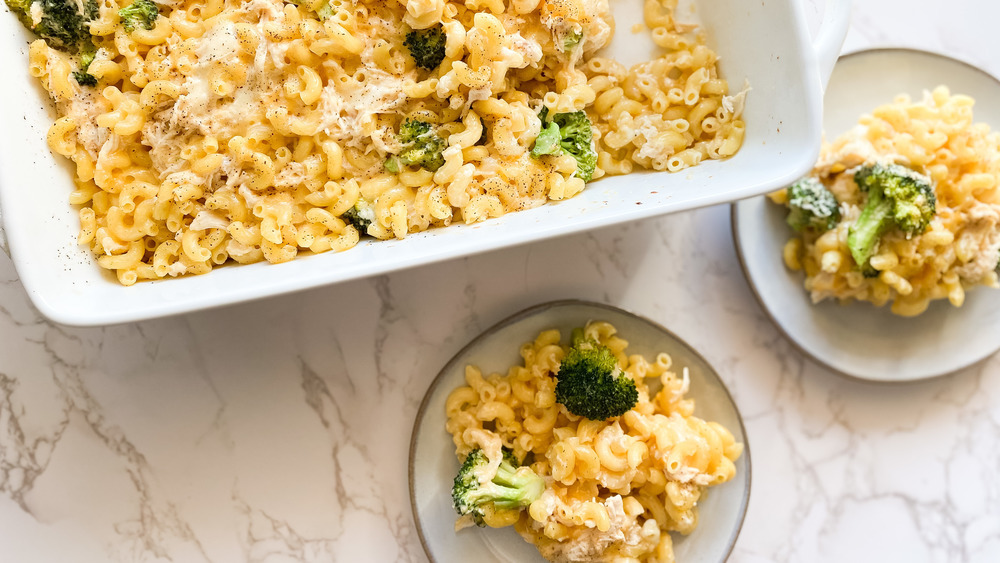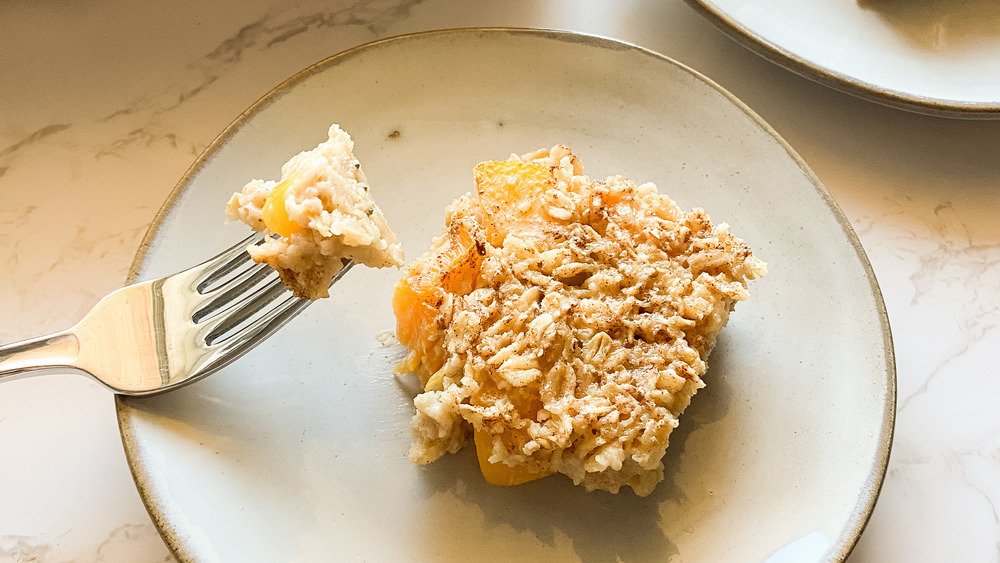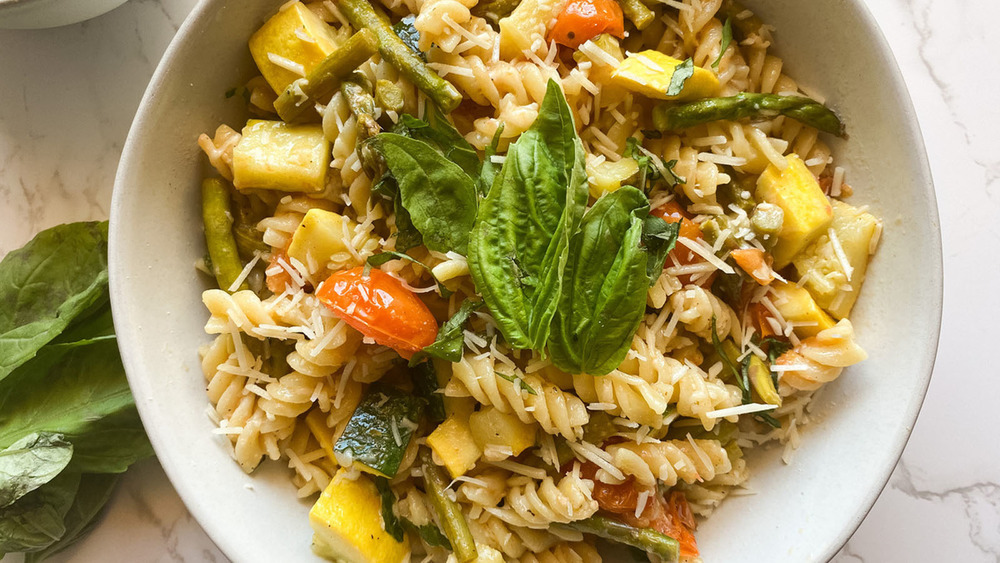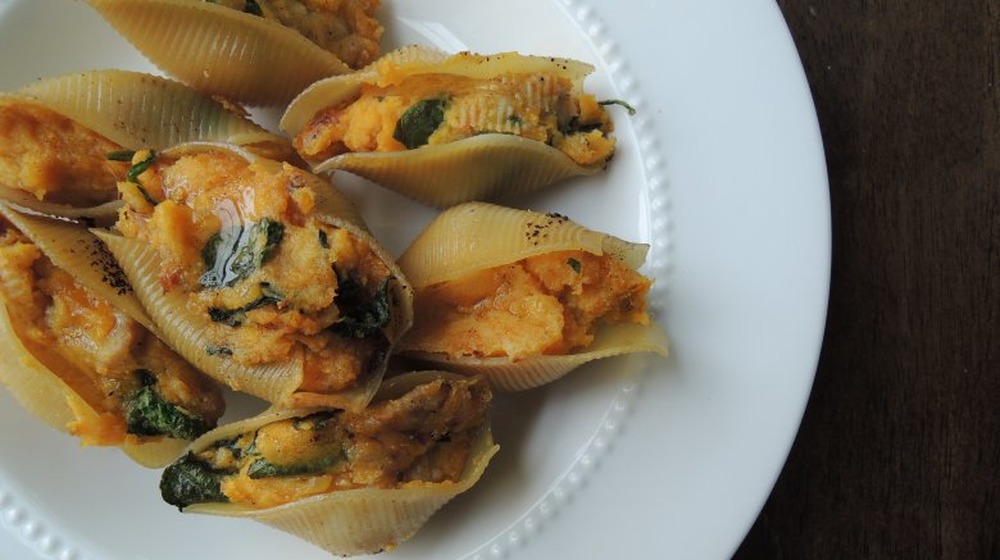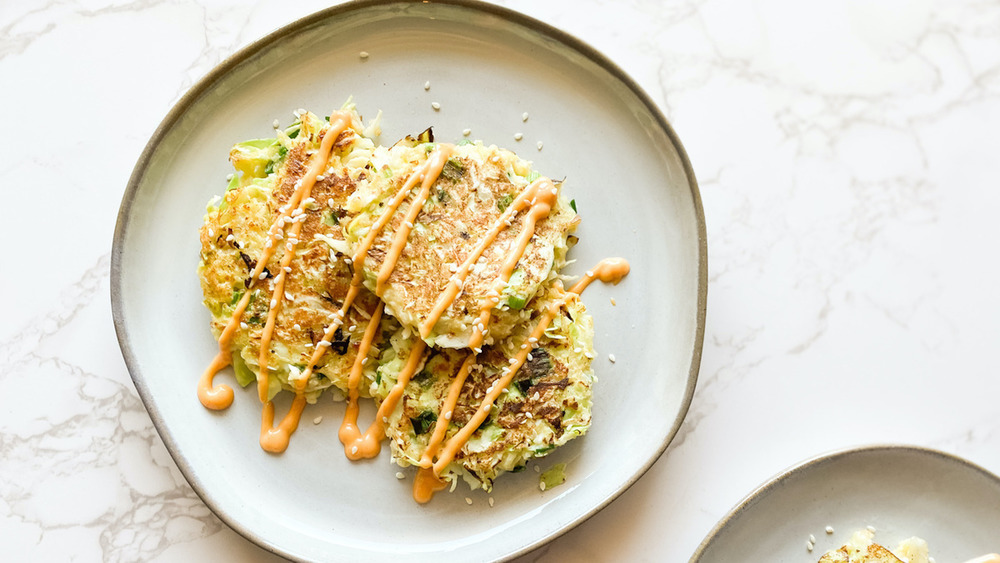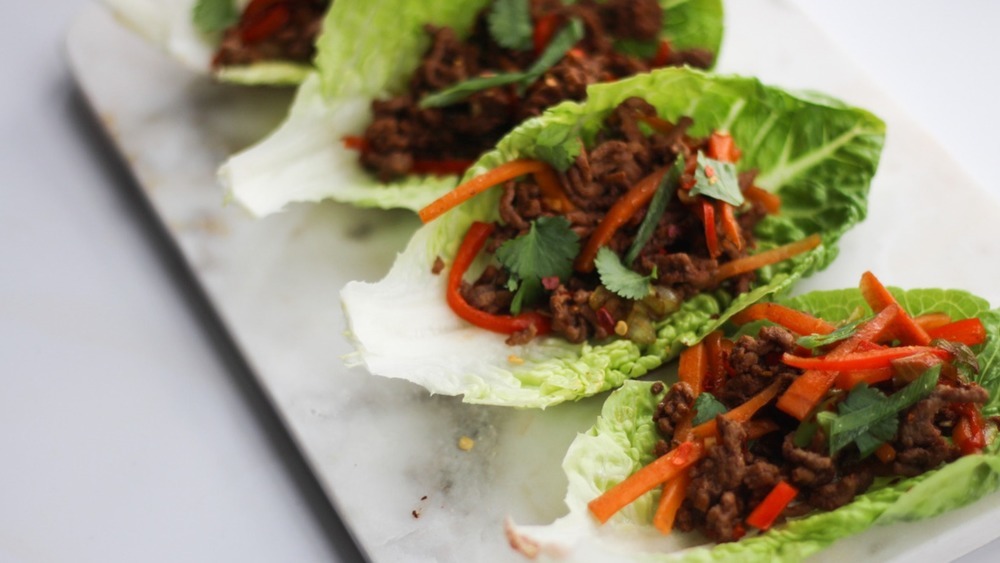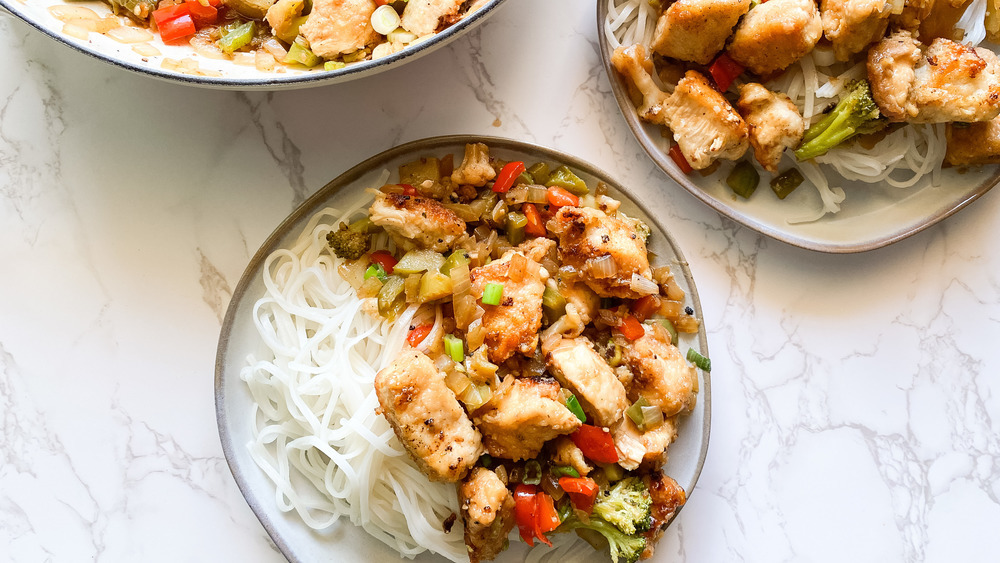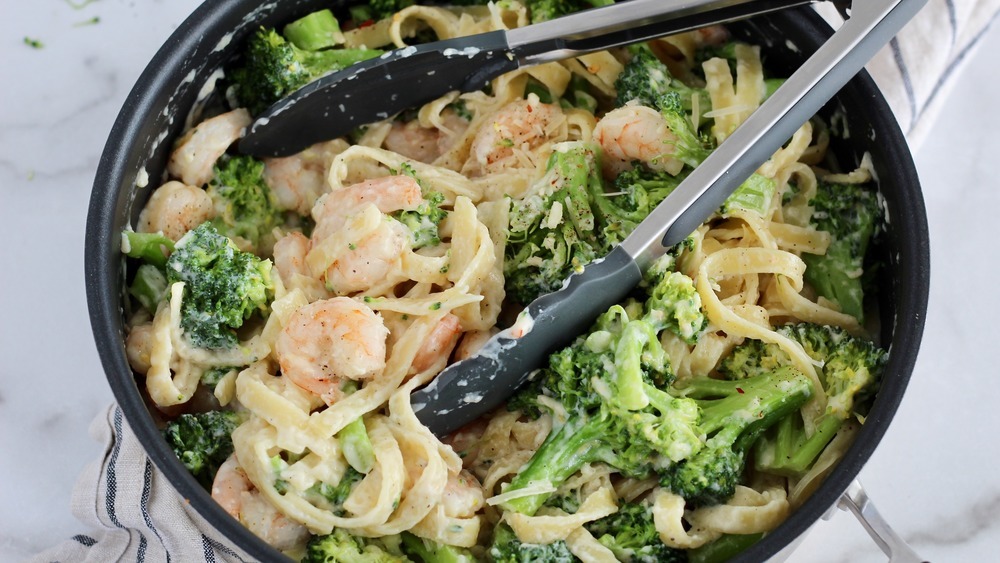Meals That Will Trick Your Family Into Eating Healthy
None of us ever thought we'd be the kind of parent who has to plead with their kids to eat their veggies, and honestly, you don't have to be. With a bit of imagination and creativity, it's possible to make healthy and delicious meals that everyone in the family can agree on.
If your kids are picky about vegetables, consider an all-in-one dish, where veggies, meat, and pasta or rice are all combined in the same casserole or sauté. If it's meat they have a hard time stomaching, consider alternative protein sources like quinoa or eggs. If you're worried about the added sugar or fat in takeout or store-bought treats, consider a version made at home that takes care to limit these added ingredients. And above all, don't stress! Kids may put up a bit of a fight when their stalwart faves are replaced by unfamiliar foods, but by focusing the conversation on something (really, anything) other than the fact that they have to try what's on their plate ... they may surprise you and do just that.
Broccoli bacon salad is rich in flavor
Broccoli is so unpopular among kids, it's basically become shorthand in movies like Inside-Out, but that's only because they haven't tried this broccoli-bacon salad yet.
The fact is, broccoli can indeed be bitter, and when overcooked, it takes on a sulphureous aroma that even parents have a hard time stomaching. In reality, that sulphur quality is a sign of one of broccoli's biggest health benefits: its richness in glucoraphanin, which converts to anti-inflammatory sulforaphane once consumed. Broccoli is also rich in fiber and in vitamin C, with one half-cup serving providing more than half of your recommended daily intake.
In this dish, the broccoli is kept raw and crisp, tossed with bacon, cheddar cheese, sweet raisins, and a mayo-based dressing, the creaminess of which can offset any bitterness in the broccoli. And while the bacon, mayo, and cheese add no small amount of fat to this dish, it's a surefire way of getting your kids curious about the little trees. If you want to lighten it up a bit, consider subbing turkey bacon or low-fat mayo.
Broccoli mac and cheese will make them smile
Again with the broccoli? You bet! Mac and cheese is always a crowd-pleaser, so why not add some veggies into the mix? Broccoli pairs really well with cheese sauces, so it's a no-brainer to include it in this mac and cheese. The dish also contains chicken breast for protein, making it a complete and nutritious dinner. This recipe is particularly nice for harried parents, as it's made with just five ingredients and on the table in 40 minutes or less.
A baked oatmeal low in added sugar
A lot of morning treats like granola bars or even microwave oatmeal can be full of sugar, which kind of offsets the health benefits of fiber-rich oats. Luckily, this baked oatmeal has a clever work-around: replacing some of the sugar with fruit. Use low-sugar or no-sugar-added canned fruit or fresh fruit to reduce your kids' sugar intake even more, and watch their faces light up when they get served a portion of this baked oatmeal for breakfast –- or even for dessert!
Pasta primavera hides veggies in something far more palatable
If getting your kids to eat their veggies feels like a chore, consider mixing them in with something we all love: pasta. In this pasta primavera recipe, asparagus, zucchini, yellow summer squash, and cherry tomatoes join farfalle pasta seasoned with garlic and parmesan cheese. It's hard to say no to that!
As an added bonus, this recipe is naturally vegetarian. Studies have shown that a flexitarian diet can reduce risks of metabolic diseases like diabetes and heart disease, so introducing one or two veggie mains into your weekly rotation is a great idea.
Stuff your pasta shells with nutrients
Butternut squash's bright orange color is a clear sign that it's rich in beta carotene, a precursor to vitamin A. Combined with vitamin C — and iron-rich spinach — it makes a healthy and delicious filling for stuffed shells.
The filling in this recipe gets loads of flavor thanks to turkey sausage, which is lower in fat than pork sausage. Seasoned with sage and baked until bubbly, these shells are delicious on their own or with a side salad.
A delicious Japanese street food
Okonomiyaki is a common Japanese street food. Hovering somewhere between a pancake and an omelet, its main ingredient is one that most kids would shy away from: cabbage. But that all changes now.
In this recipe, the cabbage is shredded so finely that it just becomes part of the patty, caramelizing and providing a pleasant note of sweetness. Let your kids dress up their portion with Sriracha mayo, eel sauce, or sesame seeds: active participation in the process will make them more likely to give it a try.
A low-carb lettuce wrap
If you're looking to reduce your carb intake, this recipe is a surefire winner. For these lettuce wraps, ground beef is sautéed in a savory combination of garlic, ginger, soy, mirin, scallions, sweet soy sauce, and vegetables. Each person at the table can pile the mixture into lettuce cups right at the table.
To make the process of assembling and eating these lettuce cups even more interactive, consider setting out small bowls of different garnishes: Sriracha, freshly chopped cilantro or scallions, sesame seeds, or chopped peanuts are all tasty options.
Healthier than homemade Chinese takeout
Chinese takeout is a tasty option the whole family loves, but it's usually high in fat and sugar –- more of a special occasion kind of thing. Instead, try your hand at making a takeout favorite at home: This Szechuan chicken recipe combines boneless, skinless chicken breasts with bell peppers, broccoli, and cauliflower. The flavorful sauce is far lower in fat and sugar than anything you'll find in a restaurant, and it pairs great alongside brown rice noodles for even more nutrients.
Alfredo with a twist
Rich and creamy alfredo sauce is a fan favorite for a reason. And in this recipe, the parmesan-scented cream sauce redolent with anti-microbial garlic coats not only noodles, but vitamin-rich broccoli and mineral-rich shrimp.
Shrimp are a low-calorie protein boasting selenium and essential vitamin B12, not to mention zinc, phosphorus, and niacin. Like other seafood, shrimp promote improved brain health and heart health, making them the perfect option for the whole family.
